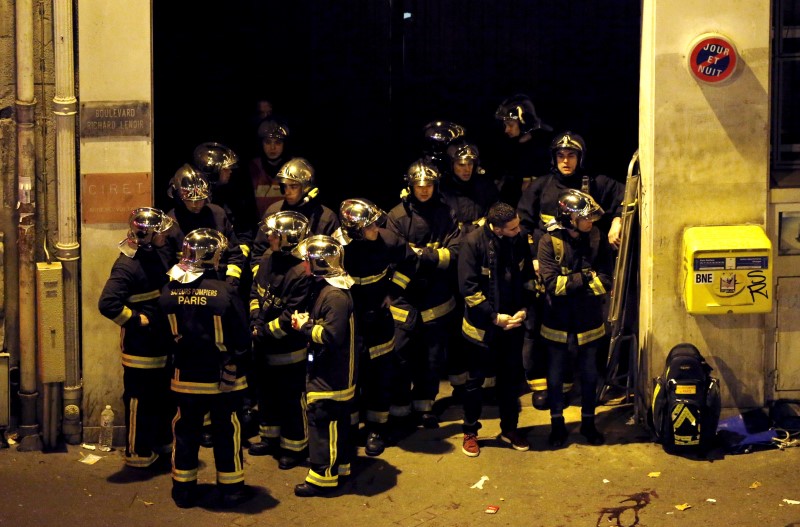By Orhan Coskun and Humeyra Pamuk
BELEK, Turkey (Reuters) - Turkish authorities suspect a high-profile British jihadist detained in Turkey last week may have been planning attacks in Istanbul similar to those in Paris, two security sources told Reuters on Sunday.
A man thought to be Aine Lesley Davis, an associate of the Islamic State militant dubbed "Jihadi John", was detained in Istanbul last week, senior Turkish officials said on Friday.
Davis was detained with a group of others who could have been planning an attack in Istanbul in parallel with the gun and bomb rampage in the French capital that left at least 129 people dead, a separate source said on Sunday.
"Davis is a figure with key responsibilities within Islamic State and he wasn't caught alone. He was within a group," the source said.
"Right now, we're investigating whether they were planning an attack in Istanbul similar to the one in Paris. We suspect there could have been a parallel attack with Paris, on the same day."
Davis is one of a group of British Islamists believed to have been assigned to guard foreign prisoners by Islamic State, alongside Mohammed Emwazi, nicknamed Jihadi John after appearing in videos showing the killings of U.S. and British hostages. Emzawi is thought to have been killed in a drone strike in Syria, U.S. and British officials said on Friday.
Istanbul is one of the world's most popular tourist destinations, with more than 10 million people visiting sights including the Blue Mosque and Hagia Sofia each year.
Separately, the source said eight people suspected of links to Islamic State had been detained in Ankara on Sunday, but declined to give their nationalities.
BIGGER THREAT
The detentions are the latest in what many of Turkey's Western allies see as a belated crackdown on Islamist activity inside the NATO member, which borders both Iraq and Syria.
Islamic State is becoming more active in Turkey, another senior Turkish official said, prompting a wider response from security forces.
"Islamic State is also changing methods and is not only carrying out attacks inside Syria. It is showing more presence here and we are therefore taking more notice of it and responding," the official said.
Turkish police and suspected Islamic State militants exchanged fire for the first time inside a city centre during a raid in the southeastern province of Diyarbakir in late October. Two Turkish policemen and seven militants were killed. Previous confrontations have taken place on the Turkish-Syrian border.
"Right now, the threats and attacks from Islamic State, which came once every six or seven months, are coming every one or two months. This is a very serious problem," a second senior Turkish official said.
Last month, the Turkish capital was rocked by a double suicide bombing at a pro-Kurdish peace rally that killed more than 100 people. It was the worst attack of its kind in Turkish history and was carried out by Turkish nationals with links to Islamic State, Turkish officials have said.
In July, the Turkish government had stepped up its fight against the militants, launching air strikes and opening its air bases to the U.S.-led coalition, a move that increased the risk of reprisal attacks.

A senior government source said Turkey had detained more than 1,000 people suspected of having links with Islamic State this year, and that 300 of them now face court proceedings.